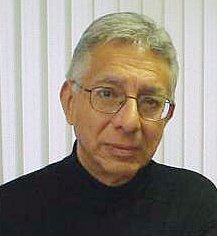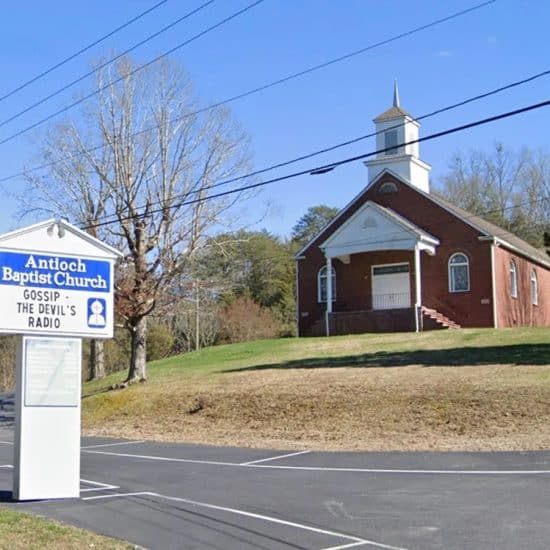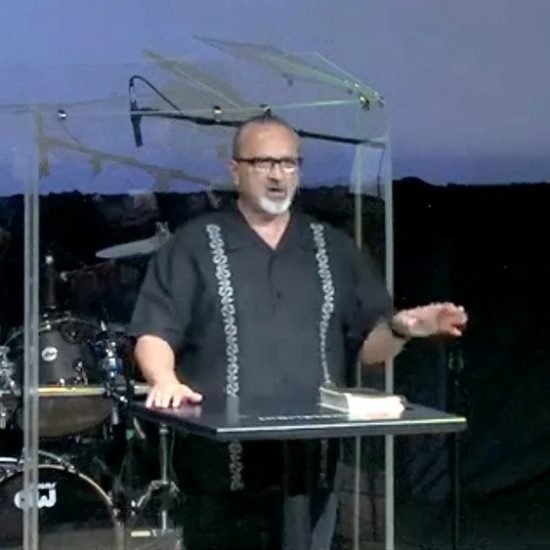ST. LOUIS – "A generation has forgotten" how unions improved conditions for workers in this country, Rudy Pulido believes. But he has not forgotten. And the memory of the union impact on his life recently led him to the collective bargaining table.

Rudy Pulido
|
"Mine was the first generation of our family to go to college and unions made that possible," Pulido, a now retired longtime Baptist pastor, said.
Though he had fought for social justice issues while a minister – including as former president of the St. Louis chapter of Americans United for Separation of Church and State – his activism has found new outlets.
A call from the St. Louis-area unit of Jobs with Justice landed him on the organization's workers' rights board after he attended one of their meetings. Jobs with Justice bills itself as "a coalition of community, labor, student and religious groups committed to fighting together for economic justice in St. Louis," according to its website. "I realized I can do this…to protect my community," Pulido said.
"Unions are like any organization or group. They always face the challenges of keeping their calling correct and without blemish," he added. "But they made the middle class possible…with higher wages that allowed children to go on to higher education."
Area negotiators sometimes turn to Jobs with Justice for experts or other assistance. Recently, Shannon Duffy of the United Media Guild called the organization, looking for a clergyperson to serve on a bargaining team that would seek a pay increase for some workers with media giant Gannett Co.
Duffy wanted a member of the clergy because "they are not confrontational like civil rights activists," he said.
Negotiations are "about power," he believes. "You have to figure out how to get the power."
That's usually done in one of two ways – creating solidarity among the workers or by getting the community behind the effort. In the past, solidarity was accomplished through strikes. "But today strikes don't usually foment solidarity," he said, so he sought a way to tap into community.
Pulido almost turned down Duffy's request to serve because he felt he didn't have enough experience. "But I had the 'moral outrage' and Shannon said that's all it takes."
A clergyman on the team caught Gannett management and its attorney "by surprise," both Duffy and Pulido said. Before the negotiating began, the corporate lawyer asked Pulido why he was participating.
Throughout the experience, the retired pastor continually reminded negotiators to consider the company's impact on its workers and what a pay raise would mean to them. He even pointed out an axiom he learned in kindergarten: "If you don't have enough candy for everyone, don't bring candy to class," he laughed.
"We aren't in kindergarten," the Gannett attorney responded.
But by the end of negotiations, the firm conceded a raise to some of its lowest-paid workers. "I believe I made a little bit of a difference," Pulido said.
Duffy and the United Media Guild felt strongly that the minister "was a definite asset," so much so that the union recently honored Pulido and the bargaining team. "Usually, it's only the lead negotiator on both teams who does all the talking," Duffy said.
Pulido didn't participate with Jobs with Justice until after he retired. He admitted he had to ask himself if he would have felt comfortable doing it as a pastor.
"Many pastors are more focused on the life of their church, rather than on the community," he said. "And the congregation sees him as their pastor, but they can't see that their pastor is a pastor to the community.
"Wouldn't it be remarkable if in our annual reports…we said, 'Here's the impact we had on our community. We stood up for this.'"
Someone should stand up for the community, Pulido emphasized. Each congregation should ask itself, "What can we do?"






